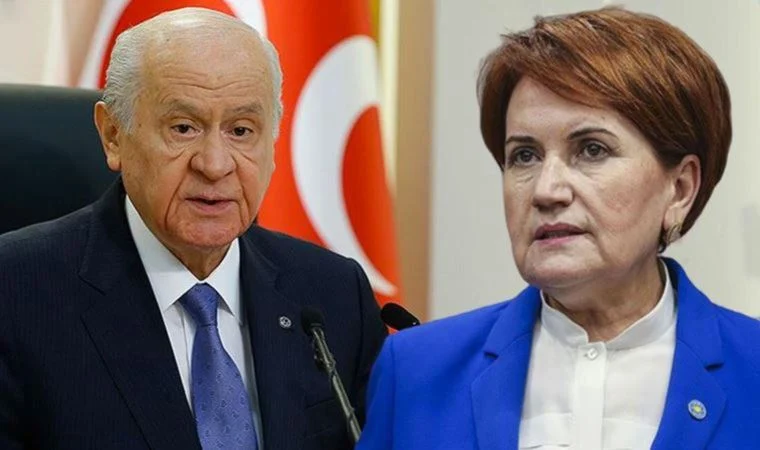The pro-Kurdish Peoples’ Equality and Democracy Party (DEM Party) is facing pressure and attacks from nationalist parties, with their leaders questioning the party’s legitimacy and accusing it of being the political extension of an outlawed terrorist group.
The DEM Party is attracting criticism due to its refusal to sign a joint declaration in the Turkish parliament in which four other parties — the ruling Justice and Development Party (AKP); its far-right ally, the Nationalist Movement Party (MHP); the nationalist İYİ (Good) Party; and the Felicity Party (SP) — condemned a recent attack by the outlawed Kurdistan Workers’ Party (PKK) on Turkish troops in northern Iraq. The attack left 12 Turkish soldiers dead, according to a statement from the defense ministry on Saturday.
MHP leader Devlet Bahçeli, who spoke at a party meeting on Tuesday, described the DEM Party as the political extension of the PKK and said their presence in the Turkish parliament is a “scandal.”
He suggested that Turkey cut the salaries of the 57 DEM Party lawmakers and transfer the treasury funds given to the party to the families of the “martyred soldiers.”
“We don’t want terrorists in the parliament, we don’t want murderers,” Bahçeli said in reference to DEM Party lawmakers, whom he referred to as “vermin.”
Bahçeli also suggested that the parliamentary immunity of DEM Party lawmakers “who aid and abet terrorism” be removed and that they appear in court as soon as possible.
Pro-Kurdish parties in Turkey are frequently accused of having links to the PKK, and dozens of their politicians and members are in jail on terrorism charges.
The PKK, which has been waging a bloody campaign in Turkey’s southeast since 1984, is listed as a terrorist organization by Turkey and much of the international community.
Pro-Kurdish parties deny links any links to the terrorist group and say they are working for a peaceful solution to Turkey’s Kurdish issue.
The Kurdish issue, a term prevalent in Turkey’s public discourse, refers to the demand for equal rights by the country’s Kurdish population and their struggle for recognition.
The DEM Party was also targeted by İYİ Party leader Meral Akşener during a party meeting on Wednesday at which she said the “so-called” party has no political legitimacy.
Akşener said although the name of the pro-Kurdish party frequently changes, its love for the “terrorist leader” does not change, in reference to jailed PKK leader Abdullah Öcalan.
Kurdish politicians say the views of Öcalan, who has been serving a life sentence in a high-security prison on İmralı Island since 1999, should be taken into consideration for the settlement of the Kurdish issue.
The DEM Party had to drop its former acronym, HEDEP, earlier this month and adopted the abbreviation “DEM” after Turkey’s Supreme Court of Appeals in November refused to green light its name change request on the grounds that its acronym was similar to that of a party that was closed down in 2003.
In October the pro-Kurdish Green Left Party (YSP) renamed itself HEDEP during a party congress in Ankara at which it also elected new co-chairs.
Akşener said people who stand behind the actions of the terrorist organization have no place in the Turkish parliament.

Meanwhile, DEM Party co-Chairperson Tülay Hatimoğulları responded to Bahçeli and Akşener’s accusations in a statement on Wednesday. She said her party feels the pain of every young person who has been killed in clashes between the PKK and the Turkish military and accused the government and its allies of fomenting the conflict to stay in power.
She said Kurdish politicians have suffered much from prosecutions, torture and threats and yet worked hard for a peaceful solution to the Kurdish issue.
In response to claims that the DEM Party lacks legitimacy, Hatimoğulları said it was the people of this country, not anyone else, who elected them to parliament.
The pro-Kurdish Peoples’ Democratic Party (HDP) ran in the May elections on the YSP ticket to circumvent the risks that could have emerged from its possible closure ahead of the elections.
The HDP faces a closure case on terrorism charges that is still pending at the Constitutional Court.
The YSP secured 8.8 percent of the vote in the 2023 parliamentary elections, while the HDP won 11.7 percent in 2018.
Pro-Kurdish political parties in Turkey have frequently faced closure on the grounds that they had links to the PKK.
However, they continued their activities under new party names.

